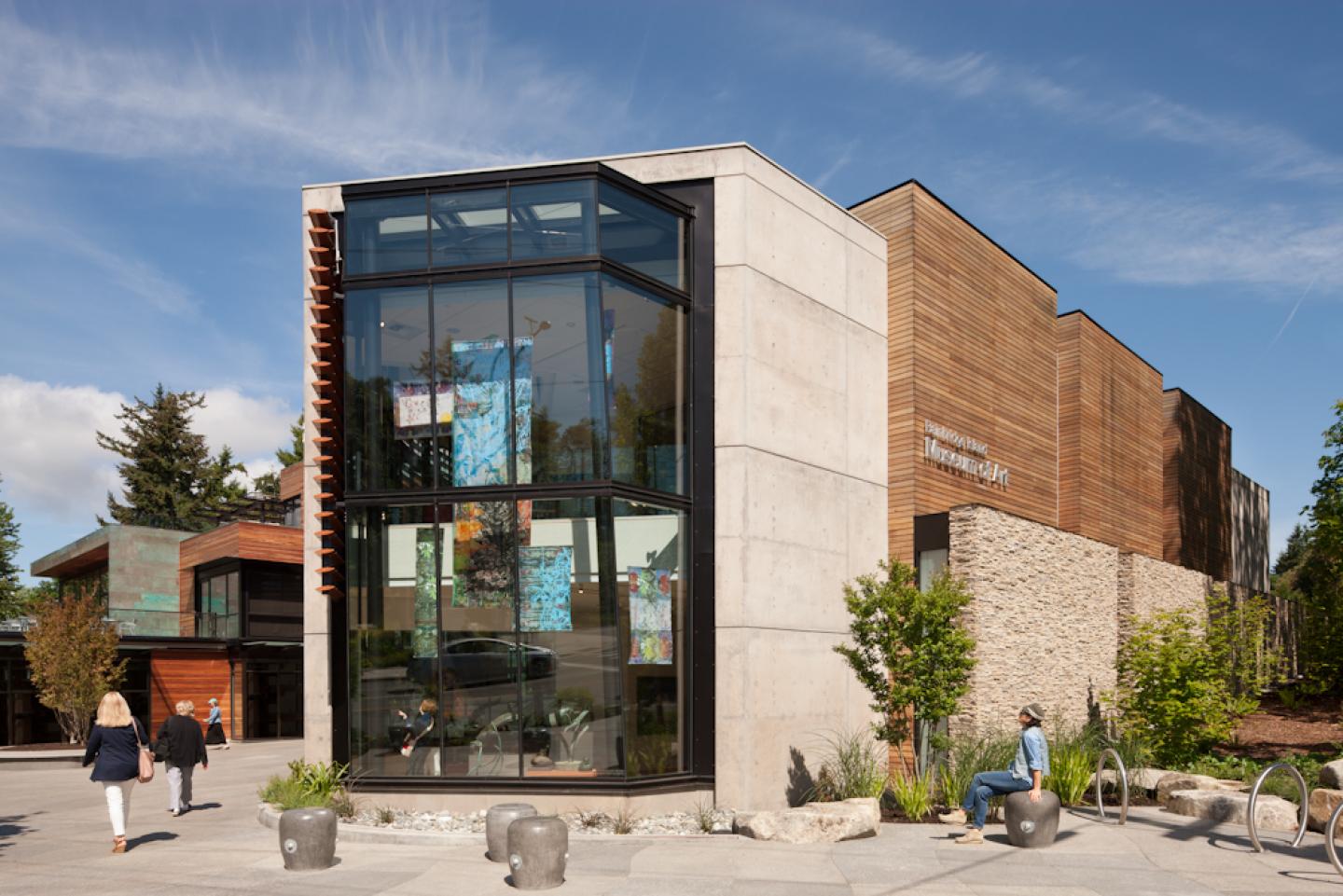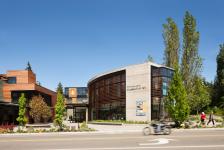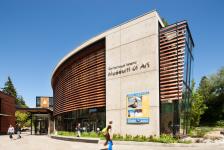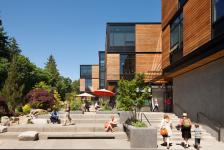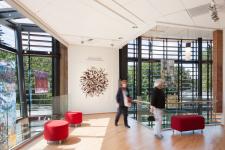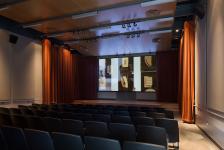The Bainbridge Island Museum of Art (BIMA) is the beacon that greets visitors and locals upon disembarking the Bainbridge Island ferry boat from Seattle. The building’s curve beckons visitors toward the entrance and the generous use of glazing allows people to peer into the museum displays. It provides an inspiring entry experience for everyone and represents the community’s commitment to the visual arts.
Adapting to the Environment
The Bainbridge Island Museum of Art adapts to its environment. Matthew and his team designed BIMA to respond to its environment, embodying its symbolic role as a “living” community institution.
A Visual Transformation
The building appears to transform as the light changes; so at night it glows – during the day it is transparent. The south, water-facing side of the building has a skin that is comprised of eight 28’ tall curved glass walls, allowing pedestrians an unobstructed view into the museum.
As the sun moves around the building, louvers shift automatically, responding to the location and intensity of the sun in the sky. The louvers are controlled by a series of light sensors that trigger them to open and or close. This allows natural light to filter into the building without damaging the art.
Matthew calls it “the white box effect”- that feeling of disorientation you get in an all-white museum with no natural light. He steadfastly maintains that there is none better than natural light to view art and is enamored with the inherent dilemma that it is also this same light that risks damage to the artwork. To solve this dilemma he designed long strip skylights on the uppermost level of BIMA. This allows the gallery to transform throughout the day in response to the amount of light streaming through the windows. To avoid damage to the artwork, he designed curved baffled light shelves that float underneath the skylights. Natural daylight flows into the space through these skylights, is diffused as it bounces from the light shelves and disperses into the gallery to create a pleasant ambiance.
“Out of the Box” Community Ideas
The museum represents “out of the box” community ideas. BIMA’s striking curved form is a design element attributed in part to the local community. Bainbridge Island is a tightknit community and the citizens are integral to the success of any project. BIMA was a true collaborative effort in which the architects and community worked together to create this success story.
Community Outreach Plan
To gain critical community support Coates created an inclusive outreach plan, using a total of twelve actual models he designed and built. The models were presented to the community where they were invited to comment and vote for their favorite model.
The dialogue was active and open. The most popular of the designs featured the sweeping curve. Coates took elements from that model and combined them with elements from other models and created the building you see today. The result is that the community takes ownership and is proud of the new Bainbridge Island Museum of Art.
Slated to Become Washington State’s First LEED Gold Art Museum
Museums are inherently energy-intensive, making LEED Gold designation a challenging goal. BIMA’s sustainable features include a geothermal heating system, automatic sun louvers, solar panels, recycled materials including Levi Strauss Denim Insulation, a living wall and vegetated roof garden.
Cost savings from energy reduction allowed museum officials to offer entry to the museum free of charge.
Hundreds of tires, washing machines, dryers and random junk were found when the one-time salvage yard and parking lot were excavated to make way for the museum.
2010
2013
No technical data available.
Architect: Coates Design
